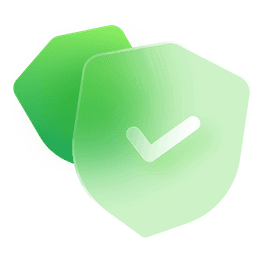The Dos and Don’ts of Cybersecurity
Security for Everyone
In the domain of cybersecurity, the responsibility is shared among the key players regardless of the type of business. The company or institution, as well as the clients, both play a role in ensuring that security is maintained in the cyberspace of operations. It is a common notion in the cyber world that people are the weakest link to information security because we are prone to human errors. However, here is a couple of Do’s and Don’ts that can help you improve cybersecurity for your business and even for personal use.
Dos & Don’ts
- Use strong passwords that are hard to guess and are at least ten characters and combines uppercase and lowercase letters, numbers, and special characters. Even better, use a long Phrase that would be easy for you to remember but uses mixed characters. And keep your password confidential.
- Use two-factor authentication where it is supported.
- For different accounts, use different passwords. Regularly changes or rather update your passwords.
- Be alert and watch out for scams and phishing emails. Do not open email attachments or links/hyperlinks from unknown sources.
- Always dispose information properly when you no longer need it, or instance through shredding or burning.
- Be aware of social engineering attacks and avoid being tricked into giving up your information by people pretending to be business partners, service providers, etc. Do Not respond to their calls nor emails if you are not aware if they are genuine.
- Lock your computer or phone when not in use to avoid unauthorized access. Also, you can disconnect from the internet or shut down the device when not in use. Do Not leave your devices unattended.
- Educate employees or coworkers on Cyber Security.
- Report all suspicious cyber-incidents to the security representative or the manager.
- Install antivirus program from a verified vendor and keep it updated.
- Safeguard your data storage devices to ensure no data is lost or damaged.
- Make Sure applications being used are regularly updated.
- Create data backups frequently.
- Have a cyber insurance cover.
- In case of a cyber threat or an attack, report the incident immediately to the necessary.
- Do not post any private information, for instance, banking information on social media platforms or public sites.
- Avoid Connecting and using public Wi-Fi hotspots, and if it is necessary, use a VPN connection and enhance your firewall settings if possible.
- Do not leave wireless connection turned on while not in use; this includes both Wi-Fi and Bluetooth.
- Do not expose your sensitive information by leaving it lying around, such as your utility bill, checks, and any other document that may hold sensitive information.
- Avoid installation of unauthorized programs on your PCs, such as cracked software programs.
- Avoid plugging in external USB flash drives to company computers if not authorized by your organization.
These are just but a few obvious and unobvious Dos and Don’ts that will assist you in improving cybersecurity. However, this is listing does not cover all the ways to improve security. It’s thus advised to be mindful of what you do and consider implications that may result from those actions. Remember, security is collective; train your employees and clients.

control security posture
